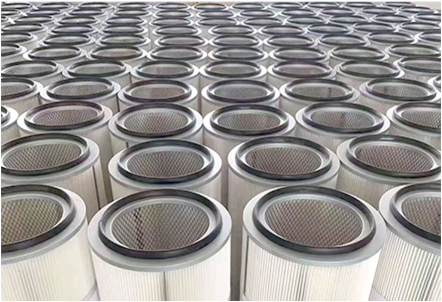 Tel:
+8615930870079
Tel:
+8615930870079
нов . 08, 2024 06:32 Back to list
Choosing the Right Cartridge Oil Filter for Your Vehicle Maintenance Needs
Understanding Cartridge Oil Filters A Comprehensive Guide
When it comes to maintaining an engine’s performance, one of the most critical components that often goes overlooked is the oil filter. Among the various types of oil filters available on the market, cartridge oil filters are becoming increasingly popular due to their efficiency and ease of use. In this article, we will explore the concept of cartridge oil filters, their benefits, maintenance tips, and how they compare to other types of oil filters.
What is a Cartridge Oil Filter?
A cartridge oil filter is a type of oil filter that comes in a cylindrical shape, encased in a housing made of metal or plastic. Unlike traditional spin-on filters, which are permanently attached to the engine, cartridge filters can often be replaced independently of their housing. This design allows for a more sustainable and cost-effective solution by enabling users to only replace the filter element rather than the entire unit.
Cartridge oil filters are designed to remove contaminants and impurities from engine oil, ensuring that the oil remains clean and effective in lubricating engine components. They typically feature multiple layers of filtration media that capture particles such as dirt, metal shavings, and sludge, which can accumulate over time and cause engine wear.
Benefits of Cartridge Oil Filters
1. Environmental Impact Because cartridge filters often allow for the replacement of the filter element alone, they generate less waste. This makes them an environmentally friendly option compared to spin-on filters, which require the disposal of the entire unit.
2. Cost-Effective Purchasing just the filter element can save consumers money in the long run. Although the initial purchase price may be higher, the savings from replacing only the filter portion can accumulate over time.
3. Improved Performance Many cartridge oil filters are designed with advanced filtration technologies that enhance their ability to remove impurities from oil. This can lead to improved engine performance and longevity.
4. Ease of Maintenance Changing a cartridge oil filter is often simpler than dealing with a spin-on filter. With proper access, owners can easily replace the filter element without the mess commonly associated with traditional filters.
5. Versatility Cartridge filters come in various designs and sizes, making them suitable for a wide range of vehicles and applications, from passenger cars to heavy-duty trucks.
Maintenance Tips for Cartridge Oil Filters
cartridge oil filter

To ensure optimal performance from a cartridge oil filter, regular maintenance is essential. Here are some tips to keep in mind
- Follow Manufacturer Guidelines Always check the vehicle’s owner manual for recommendations on how often to change the oil and filter. Regular maintenance intervals are critical in preventing engine damage.
- Use Quality Filters Not all cartridge filters are created equal. Investing in a high-quality oil filter from a reputable brand can make a significant difference in filtering efficiency and longevity.
- Inspect Seals and O-Rings When replacing a cartridge oil filter, inspect the seals and O-rings for wear and tear. A compromised seal can lead to leaks, which undermine the effectiveness of the filter.
- Proper Installation Ensure that the filter is correctly installed to avoid issues such as leakage or premature failure. Follow specific installation instructions provided by the manufacturer.
- Keep Track of Oil Change Intervals Maintaining a log of oil changes and filter replacements can help monitor the engine's health and ensure that maintenance is performed on schedule.
Comparison with Other Oil Filters
Cartridge oil filters differ significantly from traditional spin-on filters and other types available on the market. While spin-on filters are convenient and straightforward, they often lead to more waste due to their design. In contrast, cartridge filters can offer better filtration capabilities and lower environmental impact when used appropriately.
Other types, such as magnetic or centrifugal oil filters, utilize different mechanisms for contaminant removal. Magnetic filters capture magnetic particles, while centrifugal filters rely on centrifugal force to separate contaminants. However, cartridge filters remain popular due to their proven effectiveness, ease of maintenance, and cost-efficiency.
Conclusion
Cartridge oil filters play a crucial role in maintaining engine health and efficiency. With their environmental benefits, cost-effectiveness, and ease of maintenance, they present a smart choice for vehicle owners looking to extend the life of their engines. By understanding how to maintain and choose the right cartridge oil filter, drivers can ensure their vehicles run smoothly and efficiently for years to come. Whether you are a seasoned car enthusiast or an everyday driver, recognizing the value of quality filtration can make a significant difference in your automotive experience.
-
Nano Fiber Technology: Revolutionizing Cartridge Dust Collector FiltersNewsAug.06,2025
-
How Activated Carbon Air Cartridges Eliminate OdorsNewsAug.06,2025
-
Dust Filter Cartridge Handling Fine Particulate MatterNewsAug.06,2025
-
Cartridge Dust Collector Filter for Welding Fume ExtractionNewsAug.06,2025
-
Activated Carbon Filter Cartridge Effectiveness Against VOCsNewsAug.06,2025
-
Activated Carbon Air Filter Cartridge Benefits ExplainedNewsAug.06,2025

 Email:
Email:





